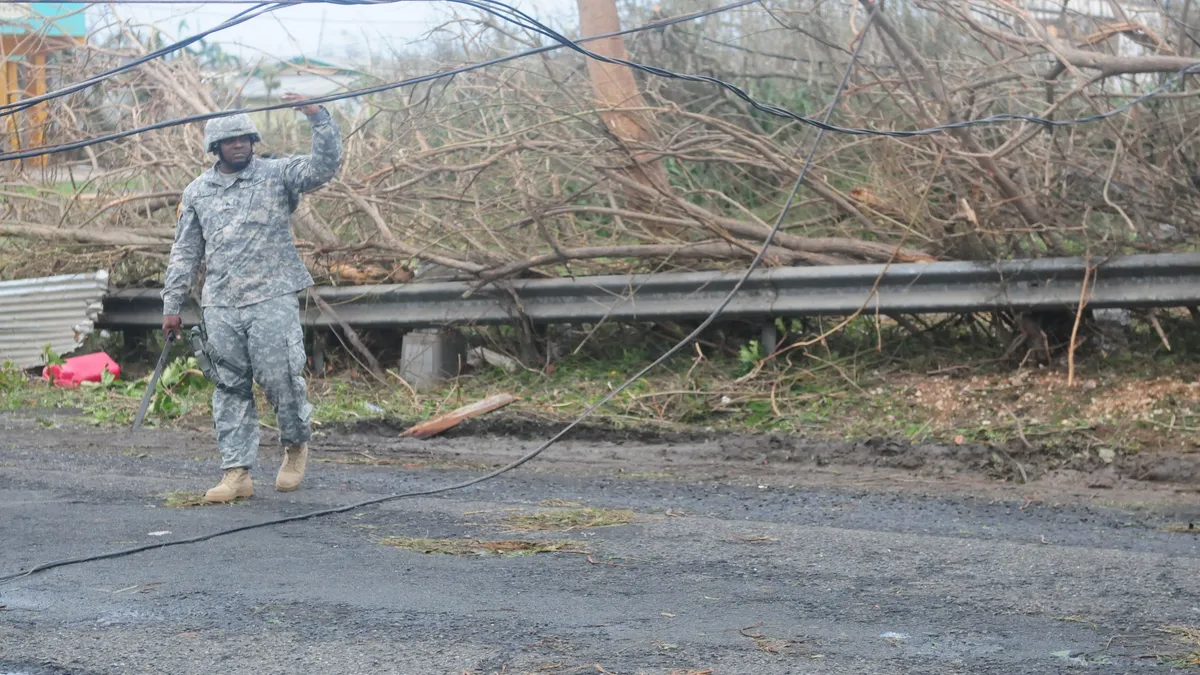Dive Brief:
- The U.S. Virgin Islands (USVI) has to dispose of an estimated 700,000 cubic yards or more of green waste and storm debris spread across three islands, as reported by the St. Thomas Source.
- The question of what to do with all the storm debris has stirred political debate. USVI legislators passed a bill that would ban the burning of the debris, but the territory's governor could veto it. Senate President Myron Jackson said he would seek a veto override to prevent the burning of debris.
- Incineration opponents say that residents are already suffering from low air quality due to the high number of generators running in the territory. However, a U.S. Army Corps of Engineers (USACE) spokesperson said St. Croix alone already has a large stockpile of mulch and chipped vegetative debris which pose a safety and health hazard as they rot — meaning additional compost may be difficult to store and manage, Inside Climate News reported.
Dive Insight:
Hurricane season has ended, but islands in the Caribbean are still reeling. The Environmental Protection Agency continues to collect household hazardous waste, and many in the region remain without power. Further cleanup will likely be painstaking.
The USACE has already committed to help the USVI remove up to 1 million cubic yards of debris. Additionally, the governor of the USVI recently extended the territory's state of emergency to be effective through Jan. 4, unless otherwise noted. The order says that "the need for a state of emergency continues to exist in the Territory" due to Hurricanes Irma and Maria hitting the territory in rapid succession.
The National Recycling Coalition has opposed open burning of debris in Houston following Hurricane Harvey and has endorsed mulching and composting vegetative waste as hurricane season closes. While the USVI legislature is trying to prevent waste burning from happening, it is yet unclear what decision the territory's governor will make.
The question of what to do after a disaster is always relevant. Along the West Coast, municipalities are struggling with landfill capacity because of the large amount of debris from wildfires. In Texas, federal officials are working on cleaning up contaminated sites that were damaged by Hurricane Harvey. No region is immune to natural disaster, so maintenance of plans to secure operations in the event of the unexpected is critical. This is especially true since unmanaged waste can spread disease and pose a risk to public health.










